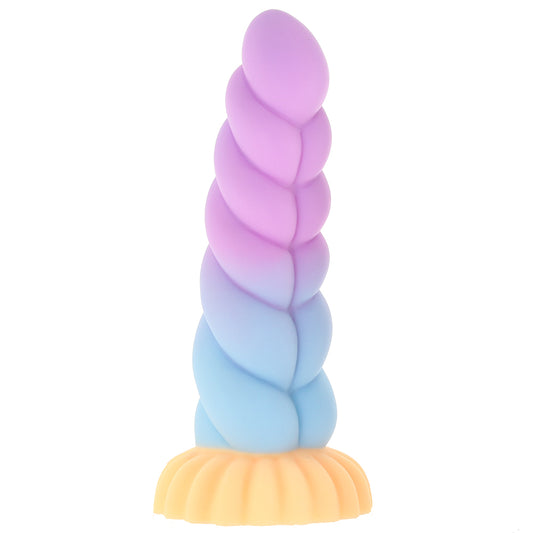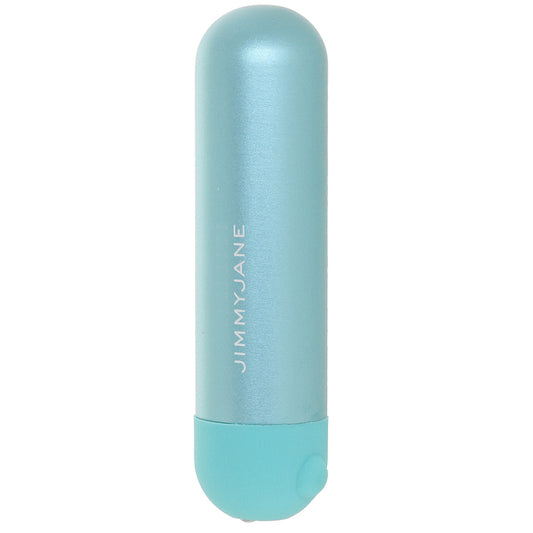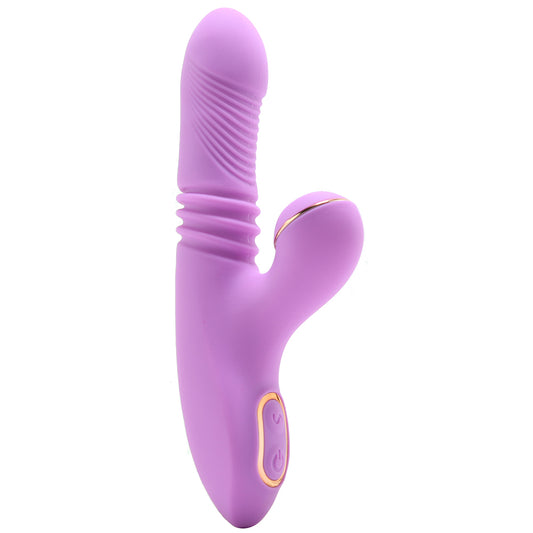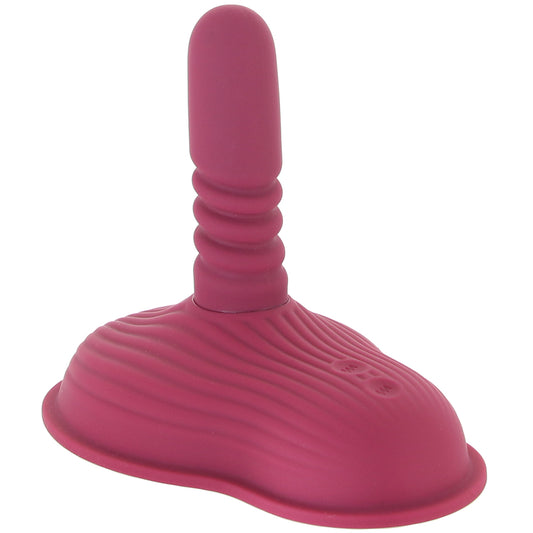Newsflash: Sex is fun! Or at least it should be if you’re doing it right. And one of the most fun parts of sex is that wonderful O, whether that comes from using adult sex toys or traditional sex.
How long does an orgasm last? Well, orgasmic sexual pleasure lasts different amounts of time in vulva- and penis-havers, and according to research, those times can vary pretty widely. Good news, though: barring medical or mental ailments, everyone is capable of having an orgasm. Those orgasms can extend in length or intensity depending on body health and sexual practices.
There’s a stark difference in the duration of orgasm when it comes to vulva-havers and penis-havers. According to sex research, women's orgasms are the clear leader when it comes to duration, clocking in at approximately 16 seconds. On the other hand, men’s orgasms last an average of ~6 seconds. This same divide is present when it comes to the average length of time required to come to orgasm during sexual stimulation. It takes a penis-haver about 8 minutes during partnered sex to get to the big O, while a woman/vulva-haver takes around 14 minutes of sexual activity to get there (on average).
Can all women actually orgasm?
Here’s a sobering statistic: 10-15% of women have never had an orgasm before. That’s right -- never ever. Now, while that sounds depressing right off the bat, it’s good to know that it doesn’t have to stay that way. It’s not that this group of women/vulva-owners is incapable of achieving orgasm; it’s just that the circumstances in their lives haven’t led them to that experience yet.
Hopefully, they get there, though female orgasm definitely isn’t a requirement to enjoy sexuality. Healthy sex doesn’t have to encompass orgasm as a goal, and not being orgasmic doesn’t necessarily mean there’s sexual dysfunction present. Simply enjoying the touch of a human you’re into or taking time to love and enjoy your body is enough benefit on its own.
Now let’s talk nitty-gritty when it comes to vulva-owners and how they get to orgasm since this does affect sexual behavior. The fact is, in order to orgasm from sexual intercourse, the vast majority of women need some sort of clitoral stimulation. If you want to “get there” on your own or help someone else get there who has a clit, you’re gonna wanna be stimulating that baby. Vibrator sex toys can help tremendously in this department, and PinkCherry has a plethora of options to choose from.
What kind of different orgasms are there?
For women and vulva-owners:
- Clitoral orgasm
This is the most dependable form of female orgasm. The clitoral head is rife with sexual possibility since it’s got a whopping 8,000 nerve endings. This is a great option for female orgasms during oral sex!
- Penetrative sex orgasm
The fact is, only 25% of women reliably get to climax through penetrative sex. That means 75%+ of women don’t normally orgasm this way, but there’s a lot of potential here. Orgasms from vaginal penetration/vaginal intercourse can be extremely pleasurable, and depending on the angle and pressure of the penetration, vaginal stimulation can stimulate the larger internal clitoral network.
- Blended orgasm
Super orgasm combo! Stimulation of the clitoral network, including the external clitoris, and maybe some anal stimulation if that’s your jam!
- Squirting orgasm
This doesn’t necessarily fit the same orgasmic script as the rest of the orgasm types; sometimes, the female ejaculation build-up and release for a squirting orgasm is very abrupt. For more information, check out How to Make Yourself Squirt (also great if you want to help your partner squirt!) and can all women squirt?
For men and penis-owners:
- Penile
This is the “normal” male orgasm as depicted in many, many, many sexual encounters in porn (seriously, porn is like one-third of all internet traffic).
- Prostate
Men can orgasm from consistent and rhythmic stimulation of the prostate, a walnut-sized group of tissue located about two inches inside the anus (depending on the body). Men often describe this experience as different from a penile orgasm.
It’s also important to note that both men and women are able to achieve multiple orgasms. There’s a lot more awareness of this in terms of female orgasms, but penis-owners can also experience it.
Adding multiple orgasms as a man/penis haver is more intricate, so if you’d like to add this to your list of sexual activities, you’ll likely have to put work in to develop this sexual function. For penis-havers, non-ejaculatory orgasms are the goal first (before progressing to multiple orgasms). If you’re interested in learning more about male orgasms, read about semen retention. Sexual orientation makes no difference; whether you’re a heterosexual woman or gay man or pansexual, you can have multiple orgasms.
How can women make their orgasms last longer?
An important note on orgasm: It’s largely a mental game, including for men. If you’re in your head during solo sex or partnered sex, for example thinking/worrying about the sexual health and safety of yourself or your partner, it can lead to mental frustration. This can prevent you from reaching orgasm at all.
That said, here are some things that could help your orgasms last longer:
- Foreplay:
Getting to vaginal orgasm without preheating the oven is already unlikely, but effort frontloaded in the sexual experience can pay dividends later on by ensuring all that sexual machinery is good, at maximum sexual arousal, and ready for action. Safely and respectfully, of course.
- Edging:
Finding your orgasms to be a little lackluster? Want to supercharge that climax? Edging, or the practice of getting right to the cusp of sexual nirvana and then coming back down is a great way of increasing the total amount of pleasure that final O really makes.
Penis-havers can also benefit here if they’re having trouble with premature ejaculation and/or erectile dysfunction. Being able to identify that cusp and come down again helps the body stay in control and delay ejaculation.
The main ways of “doing” edging are either simply stopping all sexual contact for a moment to let the sexual charge lessen or somehow taking your focus off of all the yumminess happening at the moment. Pick your favorite, or try both!
- Breath:
There are any number of neo-tantric techniques that can help you control your breath; this is a tried-and-true way of making orgasms last longer and be more intense.
- Get swole:
One easy way of getting your O to O-longate is to strengthen your pelvic floor muscles. When you do a magical kegel exercises, you’re able to more squarely contract your pelvic floor muscle during sex (partnered or solo), and your nether regions will also get more blood flow. Up that sexual performance through muscles!
If you’d like more info on the ins and outs of safer sex and sexual medicine, the Mayo Clinic has a lot of excellent resources (while also being a great organization that respects your personal information).
It’s also good to keep in mind that orgasms are personal -- the length, width, and girth of yours is nobody’s business but your own. There’s nothing wrong with you if you experience them in a certain way (or don’t). Your sexual journey is unique to you, and you get to direct it however you like.















